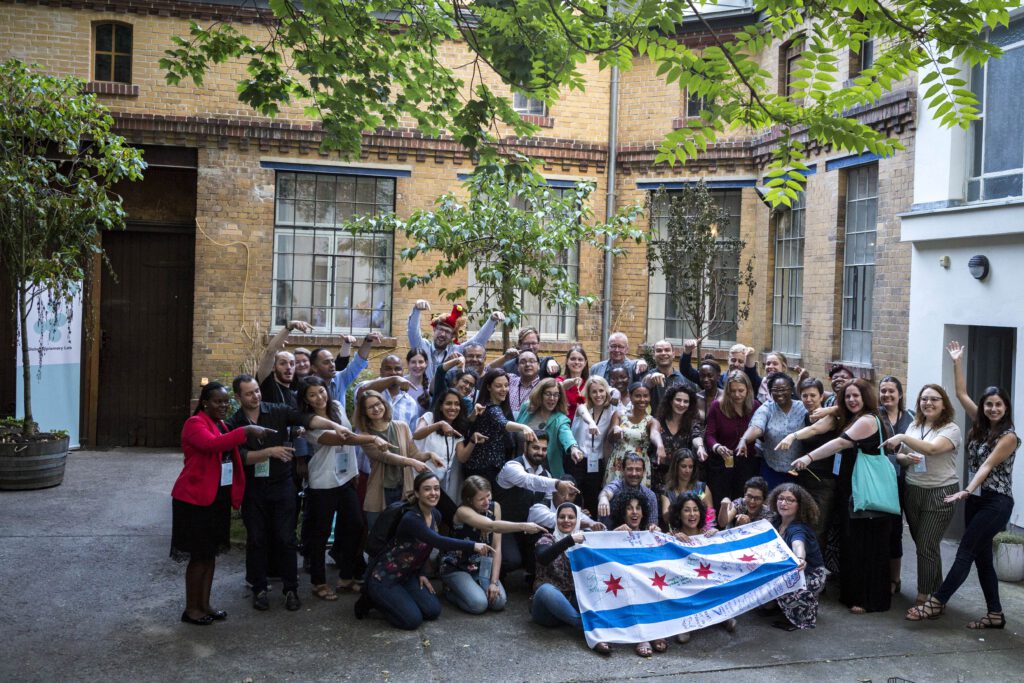Activities
Inspiring Labs – then what?

Format
Topic
Successful and inspiring Labs – then what?
The GDL is known for its Labs, of course. This is where the co-creation process takes place as part of an interdisciplinary and intercultural undertaking in which members interact in person – among themselves as well as with project partners – and where new networks are formed.
In the past two years, the GDL’s Labs took place in Berlin and Chicago (2018) and in Accra and Berlin (2019), respectively. The prE-Summit offered the opportunity to recapitulate what had happened in these Labs, to learn about the developments that had taken place in the region following the Labs, and to come up with ideas for how to continue to move ideas to the next level. Since new GDL members had also not had the chance to participate in a Lab to date, but were in the process of deciding which of the forthcoming regional events to apply to for the coming year, the session “Inspiring Labs – then what?” also helped them to get a better idea of the expectations before and during the Lab, and what the possible outcomes could be.
Moderated by Julia Sattler, the first part of the session brought together the local hosts of the 2018 and 2019 Labs, Marty Castro and Firmin Kami Adjahossou, as well as 2018 Methodological Lead Theresa Carrington and 2019 Curriculum Group Member Stefan Cibian. Participants learned about Marty’s motivation to bring the GDL to Chicago to support him as well as the Challenge Holders of the 2018 Lab, the City of Chicago and the Obama Foundation, to establish new approaches to the epidemic of youth violence in the city. They heard from Firmin about how important it was that the GDL held its first Lab in Africa and how productive the exchange with local partners was in order for participants of the 2019 Lab to get to know more about approaches to harnessing the potential of the demographic dividend in Africa.
Theresa and Stefan talked about their experiences with the members-driven approach of the GDL, which also means bringing together people from a wide variety of backgrounds in order to cooperate with each other. Both provided an insight into some of the results achieved in the 2018 and 2019 Labs. Theresa addressed the multidisciplinary toolkit GDL members developed while in Chicago and talked about the importance of the “ecosystem” that was established on the ground among the local partners in the city tackling violence from their different perspectives. Stefan presented the idea developed by GDL members in Berlin to establish cooperative partnerships between German and African cities and facilitate communication between local partners as one approach to seizing the potential of the demographic dividend – this idea is very much in line with the approaches to city diplomacy discussed in another session of the prE-Summit.
But what do the actors on the ground think about these suggestions? The second part of the event took participants to break-out rooms to meet Sarah Bernardy, Deputy Director of Policy Planning at the Federal Foreign Office, as well as Priscilla Aguilar and Monserrat Ayala, two of the Chicago young people who had participated in the Lab as Young Advisors. While Sarah Bernardy addressed the Federal Foreign Office’s work in the area of city diplomacy and its plans to keep working in this arena, Priscilla and Monserrat talked about the current situation in Chicago, which is not only impacted by youth violence, but also by the COVID-19 pandemic, of course.
Overall, the internal session provided an opportunity for members to understand the working of a Lab and the effects of the GDL’s projects on the ground, and also to follow up on and think about future developments in the region after the Lab – as well as to consider their potential involvement in this regard.